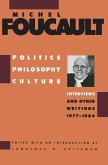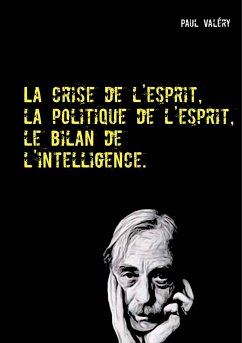Drawing on the work of Ludwig Wittgenstein and novelists such as Walker Percy, Paul Auster and Graham Greene, A Philosophical Disease brings to the bioethical discussion larger philosophical questions about the sense and significance of human life. Carl Elliott moves beyond the standard menu of bioethical issues to explore the relationship of illness to identity, and of mental illness to spiritual illness. He also examines the treatment of children born with ambiguous genitalia, the claims of Deaf culture, and the morality of self-sacrifice. This book focuses on a different sensibility in bioethics; how we use concepts, and how they relate to our own particular social institutions.
Hinweis: Dieser Artikel kann nur an eine deutsche Lieferadresse ausgeliefert werden.
Hinweis: Dieser Artikel kann nur an eine deutsche Lieferadresse ausgeliefert werden.
"This book is one of the finest--and freshest--works of bioethics criticism I have had the pleasure to read. It will challenge philosphers of medicine and reflective clinicians alike." -- JAMA
"It is a welcome and original contribution to bioethics." -- Medical Humanities Review
"The author uses a Wittgensteinian "anti-theory" to discuss issues in biomedical ethics. Topics include illness and identity, psychopharmacology, the role of clinical ethicists, and narrative in medicine The Hastings Center Report."
"I had come to the conclusion that I could not stand to read another book in bioethics. They all go over the same ground in the same way. So thank God for Carl Elliott, who has written a book about the philosophy and ethics of medicine that is wise, illuminating, and funny. Elliott has learned Wittgenstein's lessons well and uses them to help us see the moral challenges modern medicine confronts. Even more, he helps us see how we must live if we are to survive not only the care medicine holds out, but our own longings as well." -- Stanley Hauerwas, Gilbert T. Rowe Professor of Theological Ethics, Divinity School, Duke University
"An absorbing look at the effort to help doctors answer all those questions modern technology poses... Draw[s] on the best kinds of storytelling to illuminate bioethical decision making. He uses [Walker} Percy and other writers such as Kurt Vonnegut to make the point that the big, old questions about the good life and how to live it lie behind the immediate issues of bioethics... A refreshing alternative to routine bioethics discussions." -- New Scientist
"An extraordinarily fine book--the best thing I have seen on the subject. It takes a broad, reflective view of the subject that is neded...It is its practice-centered, inside view of things which is so remarkable--that, and the clarity and force of exposition." -- Clifford Geertz, Harold F. Linder Professor of Social Science, Institute of Advanced Study, Princeton, New Jersey
"As we read Carl Elliott, we become aware of the contexts in which decisions arise: the state of medicine, the state of the nation, the state of the soul. He does not sound like other bioethicists; he sounds like Walker Percy, with a distinctive Southern voice, at once self-assured and ruminative. That voice transforms bioethics." -- Peter D. Kramer, author of Listening to Prozac and Should You Leave?
"[A] wide-ranging, intelligent, engaging and irreverent set of reflections on some deeply puzzling moral and cultural phenomena." -- John D. Arras, Porterfield Professor of Biomedical Ethics, University of Virginia
"Keeping close to the language of daily experience in a way that may remind some of Oliver Sacks, Carl Elliott shows us the ways in which medicine is losing its way at the end of the twentieth century. A Philosophical Disease is a notable blend of honest doubt and humane imagination." -- Stephen Toulmin, Henry R. Luce Professor, University of Southern California
"It is a welcome and original contribution to bioethics." -- Medical Humanities Review
"The author uses a Wittgensteinian "anti-theory" to discuss issues in biomedical ethics. Topics include illness and identity, psychopharmacology, the role of clinical ethicists, and narrative in medicine The Hastings Center Report."
"I had come to the conclusion that I could not stand to read another book in bioethics. They all go over the same ground in the same way. So thank God for Carl Elliott, who has written a book about the philosophy and ethics of medicine that is wise, illuminating, and funny. Elliott has learned Wittgenstein's lessons well and uses them to help us see the moral challenges modern medicine confronts. Even more, he helps us see how we must live if we are to survive not only the care medicine holds out, but our own longings as well." -- Stanley Hauerwas, Gilbert T. Rowe Professor of Theological Ethics, Divinity School, Duke University
"An absorbing look at the effort to help doctors answer all those questions modern technology poses... Draw[s] on the best kinds of storytelling to illuminate bioethical decision making. He uses [Walker} Percy and other writers such as Kurt Vonnegut to make the point that the big, old questions about the good life and how to live it lie behind the immediate issues of bioethics... A refreshing alternative to routine bioethics discussions." -- New Scientist
"An extraordinarily fine book--the best thing I have seen on the subject. It takes a broad, reflective view of the subject that is neded...It is its practice-centered, inside view of things which is so remarkable--that, and the clarity and force of exposition." -- Clifford Geertz, Harold F. Linder Professor of Social Science, Institute of Advanced Study, Princeton, New Jersey
"As we read Carl Elliott, we become aware of the contexts in which decisions arise: the state of medicine, the state of the nation, the state of the soul. He does not sound like other bioethicists; he sounds like Walker Percy, with a distinctive Southern voice, at once self-assured and ruminative. That voice transforms bioethics." -- Peter D. Kramer, author of Listening to Prozac and Should You Leave?
"[A] wide-ranging, intelligent, engaging and irreverent set of reflections on some deeply puzzling moral and cultural phenomena." -- John D. Arras, Porterfield Professor of Biomedical Ethics, University of Virginia
"Keeping close to the language of daily experience in a way that may remind some of Oliver Sacks, Carl Elliott shows us the ways in which medicine is losing its way at the end of the twentieth century. A Philosophical Disease is a notable blend of honest doubt and humane imagination." -- Stephen Toulmin, Henry R. Luce Professor, University of Southern California









